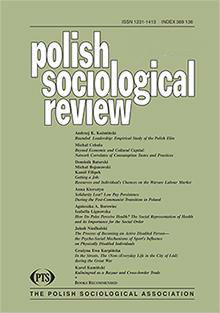The Higher Principle? An Attempt to Develop a Near Universal Approach to Explaining Voter Turnout through Micro-Macro Interactions
The Higher Principle? An Attempt to Develop a Near Universal Approach to Explaining Voter Turnout through Micro-Macro Interactions
Author(s): Michal NovýSubject(s): Politics / Political Sciences, Politics, Social Sciences, Sociology, Electoral systems
Published by: Polskie Towarzystwo Socjologiczne
Keywords: Voter turnout; cross-level interaction; multilevel modelling; political equality hypothesis; higher principle
Summary/Abstract: Over the past decade, several authors have tried to explain why people participate in elections by examining both direct and contingent effects of diverse sets of factors. While the direct effects follow a simple logic that some independent variable directly affects turnout, contingent effects work on the assumption that the influence of one explanatory variable differs across varying levels of another explanatory variable. In the previous research, the existence of latter effects has been justified on the basis of more or less convincing stories. An attempt is made here to provide a more general framework, stemming from the question, “At what moment do representative democracies achieve political equality?” From this starting point, the article introduces a near universal approach for understanding contingent effects in voter turnout theory and for developing various hypotheses that may be tested using multilevel models that include cross-level interaction.
Journal: Polish Sociological Review
- Issue Year: 193/2016
- Issue No: 1
- Page Range: 87-99
- Page Count: 13
- Language: English

